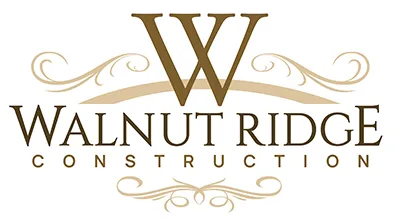
Cost-Plus Builder vs Fixed-Price Builder: What’s the Difference?
At Walnut Ridge Construction, we offer homeowners the cost-plus model because it gives homeowners total transparency and control. Here’s what that means — and why it matters.
Table of Contents
Cost-Plus Builder vs Fixed-Price Builder: What Tennessee Homeowners Should Know
What Is a Fixed-Price Builder?
Side-by-Side Comparison: Cost-Plus vs Fixed-Price
Why Fixed-Price Builders Are More Risky Than They Look
Cost-Plus Builder vs Fixed-Price Builder: What Tennessee Homeowners Should Know
When you’re planning to build a custom home, one of the first decisions you’ll make is choosing how your builder will price the project. Two of the most common options are fixed-price and cost-plus contracts — and understanding the difference can save you thousands of dollars and a lot of frustration.
What Is a Fixed-Price Builder?
A fixed-price builder gives you a single, lump-sum price to complete your home. That number sounds simple and reassuring — but behind the scenes, it usually includes hidden markups and “safety buffers” to protect the builder’s profit margin.
Because they have to guarantee a total cost up front, fixed-price builders add extra money for unforeseen expenses, material increases, or delays. If those don’t happen, the builder keeps the difference — not you.
Drawbacks of Fixed-Price Contracts:
Inflated estimates to cover “what-if” scenarios
Little to no visibility into actual costs
Limited flexibility to make changes
Builder profit from unspent funds
What Is a Cost-Plus Builder?
A cost-plus builder operates with full transparency. You pay the actual cost of construction — materials, labor, and subcontractors — plus a clearly defined builder’s fee.
This model eliminates hidden profit margins and allows you to see exactly where your investment goes. Every receipt, estimate, and invoice is shared with you in real time.
Benefits of Cost-Plus:
100% financial transparency
Flexible design and upgrade options
Honest billing and direct communication
Collaboration rather than confrontation
See What’s Included in Our Contract
Side-by-Side Comparison: Cost-Plus vs Fixed-Price
Here’s how the two contract types compare across key areas of the building process:
Why Fixed-Price Builders Are More Risky Than They Look
At first glance, a fixed price feels “safe” — but it often works against the homeowner. You’re locked into a contract before the true costs are known, and any change can trigger expensive upcharges.
Hidden Risks Include:
Paying inflated “buffer” costs up front
Being charged change order fees for small modifications
Losing flexibility to choose better materials mid-project
Builder profits from unused budget instead of refunding you
Learn About Common Builder Red Flags
Why Walnut Ridge Uses the Cost-Plus Model
We build every home under a cost-plus contract because we want our clients to understand exactly where their money goes. It keeps everyone aligned, prevents surprises, and builds long-term trust — the way homebuilding should be.
Our Promise to Clients:
Open-book transparency
Shared project budgets
Clear builder’s fee disclosed up front
Honest communication at every step
Which Model Is Right for You?
If you’re building a production home or using a simple, pre-set plan, a fixed-price contract might seem appealing. But if you’re building a truly custom home, where design and finishes evolve during the process, cost-plus is almost always the better choice.
It gives you the flexibility to make decisions as you go — without penalty or pressure.
Final Thoughts
Choosing the right builder isn’t just about price — it’s about trust. With a cost-plus agreement, you see what your home really costs, make informed decisions, and build with confidence knowing your builder is your partner, not a gatekeeper.
At Walnut Ridge Construction, transparency isn’t optional — it’s who we are.

